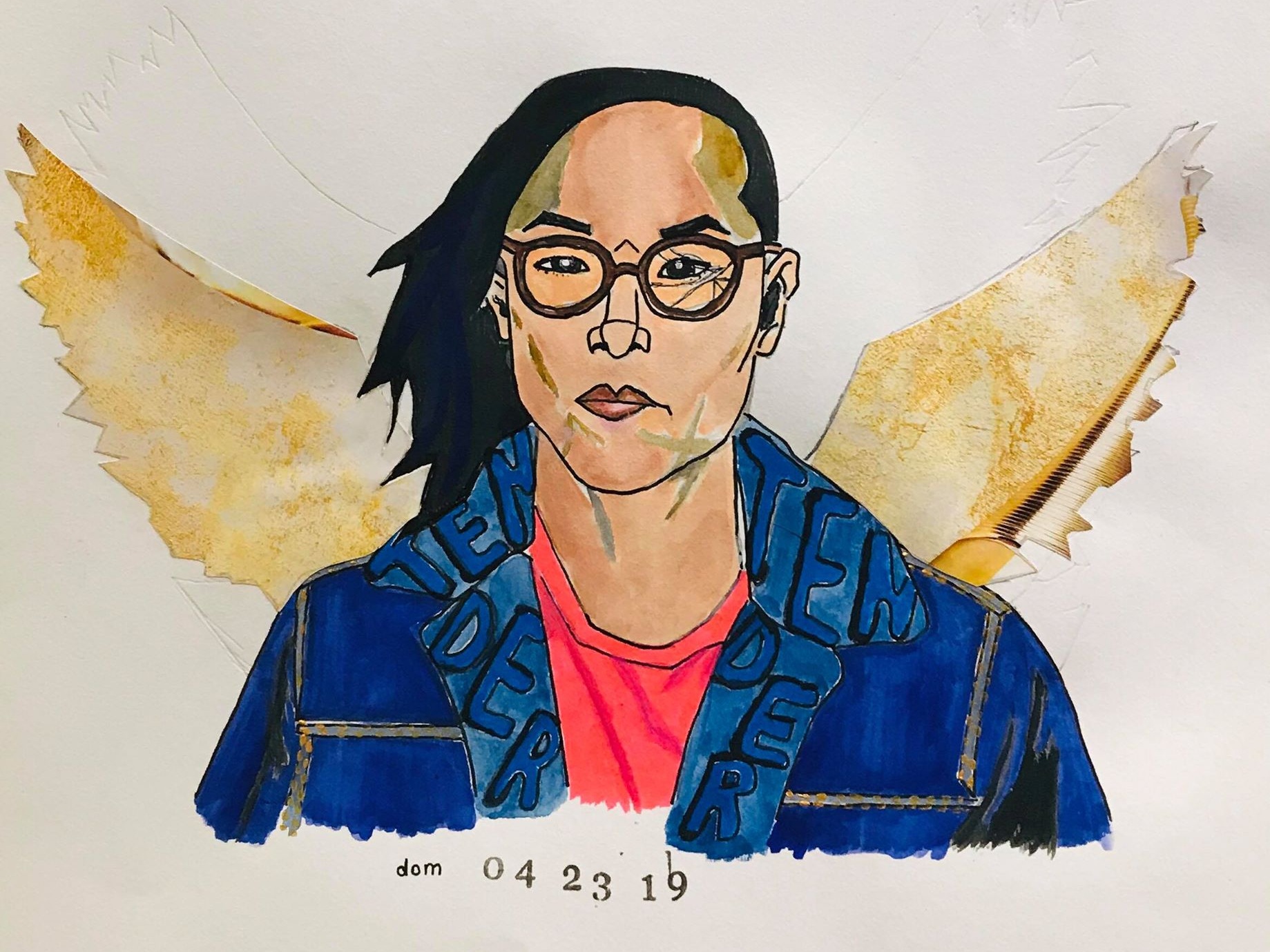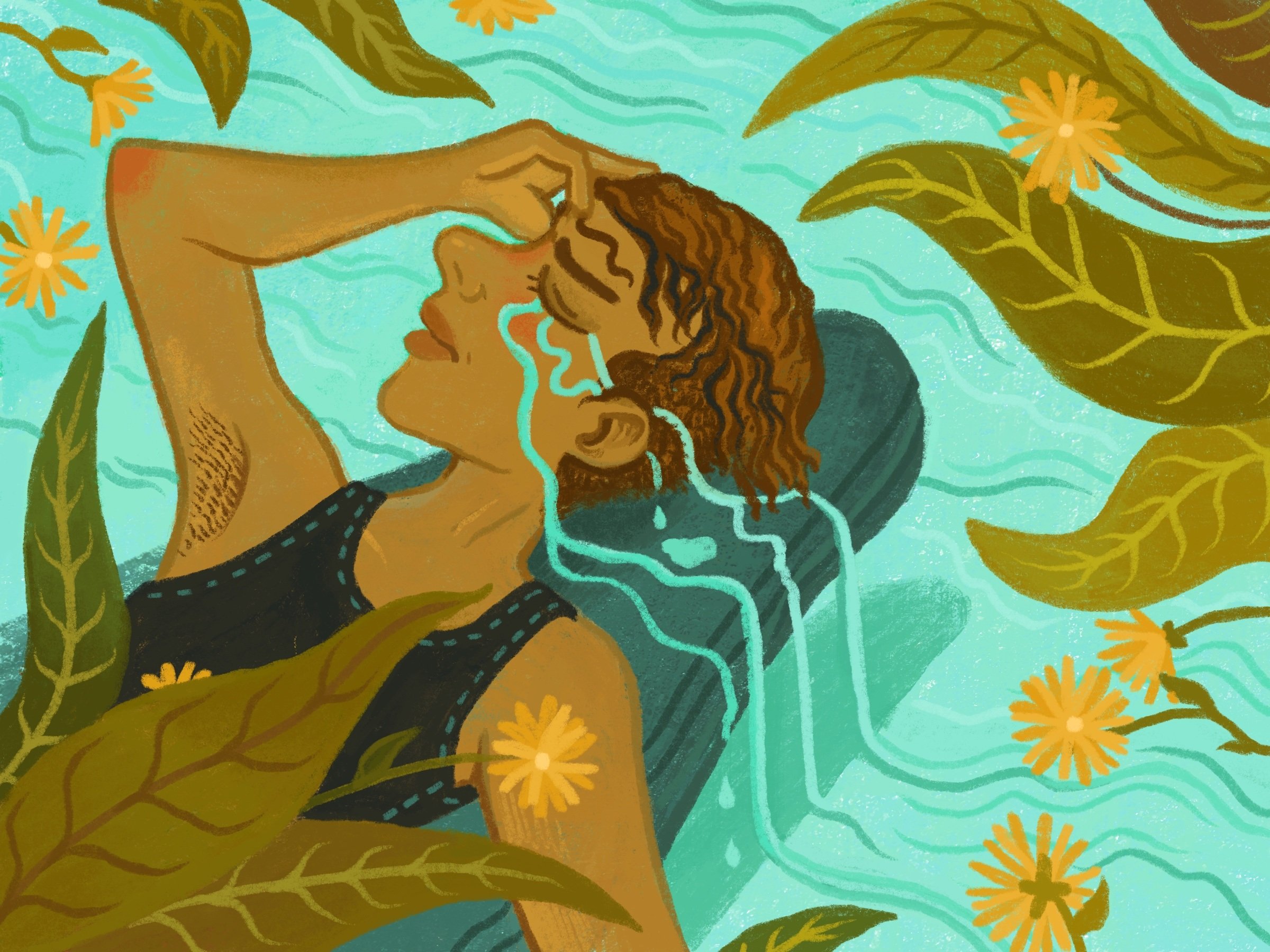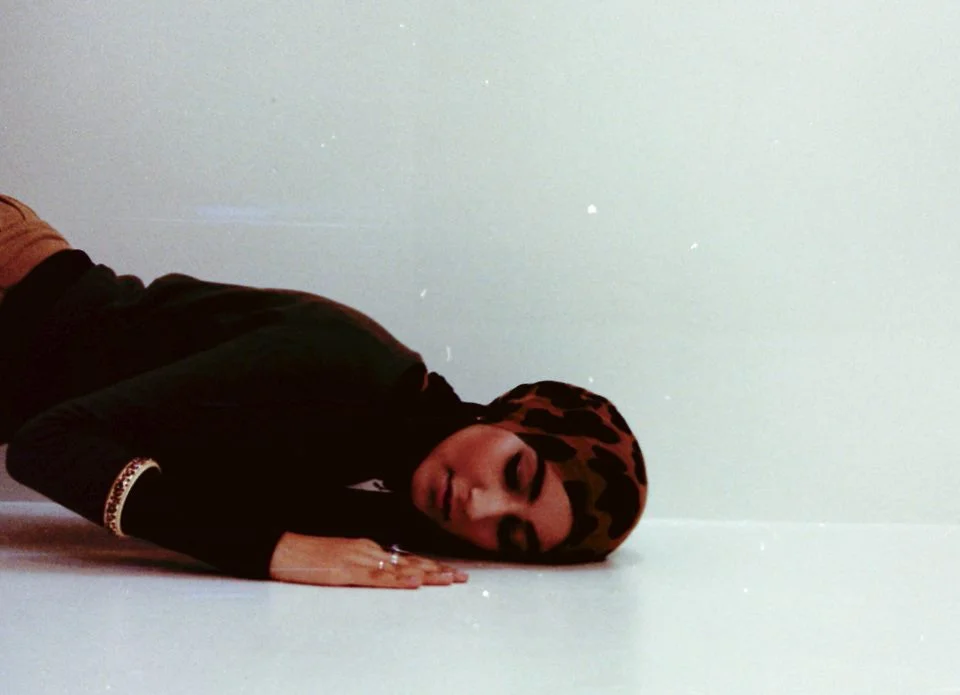Art by Rajesh Saraswati
TRIGGER WARNING:
Throughout April, Rest for Resistance is proud to feature writing by LGBTQ+ people of color for Sexual Assault Awareness Month.
The following poem contains graphic details of childhood sexual assault (CSA) as experienced by a trans woman of color.
there are different kinds of warzones
like the time i was thirteen and took
a twenty six year old dick
in the park at midnight
and i felt my world torn apart
not unlike the time my cousin
made me touch him at age six
in the family bathroom
but now
now, i feel the deftness of a world
and into it i sleep without sound
so when the few friends i have
will tear themselves away
i remember that i’ve been torn apart before
i remember the time that you told me
to remember where i came from
and where i will go.
We need community support to continue publishing!
Articles and artwork like these are only possible through your contributions. Please donate today to sustain the wellbeing of artists, writers, healers, and LGBTQ2IA+ people of color.
You can also support our team by picking up
a Rest for Resistance print zine, bag, or shirt.
Image description:
An illustrated person is laying on the ground, surrounded by green leaves and yellow and blue flowers. They are crying, eyes closed, with sections of the neck, midsection, arms, legs, and ankles missing, cleanly cut with pink flesh showing. The green leaves cradle them and cover delicate areas.
About METAL FEMME:
metal femme is a queer trans south asian artist invested in deconstructing various neocolonial, imperialist traumas through radical healing and love. metal femme is a survivor and an eventual victor. you can find her on twitter @shezdying and instagram @metalfemme and read more of her poetry here on Rest for Resistance.
About Rajesh Saraswati:
Rajesh Saraswati is an illustrator based out of Northern California currently creating comics and apparel. See their art at art-twink.tumblr.com, and follow Art Twink on Instagram and facebook.

















Whether you have a little privilege or a lot, it’s easy to feel helpless when considering the scope of systemic oppression. Growth is always possible, so once we accept the need to change, the only question is how.